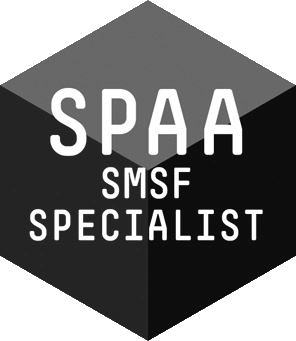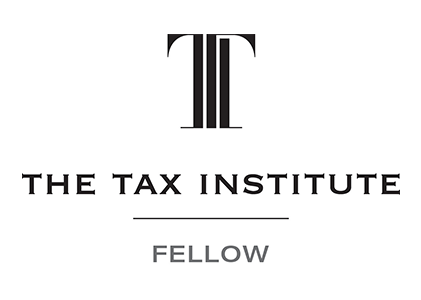
THINGS EVERYONE SHOULD DO BEFORE 30 JUNE 2020:
- Super - Assess your eligibility for the government co-contribution and spouse contribution
- Tax-deductible super contributions are a very effective and widely used tax minimization strategy, however, be sure to know your threshold limits - $25,000 for concessional contributions, $100,000 for non-concessional contributions with the option to bring forward 3 years to contribute $300,000 at once. If you have a super balance of below $500,000 and didn’t use your entire $25,000 cap in the 2018-19 financial year you may have the option to bring forward the unused portion of the cap and contribute additional amounts this year.
- If you have downsized your house and have additional funds left over from the move you also have the option to contribute an additional $300,000 into super which is not included in any of the caps.
- Ensure your super contributions are received by your fund before the close of business 30 June otherwise they are unlikely to count as a 2019/20 deduction.
- If you have purchased a new investment property, contact a quantity surveyor to enquire about a depreciation report for the property.
- If you have made a significant capital gain in 2019/20 consider making a super contribution to offset the gain.
- Look over car expenses, if using a logbook ensure it is current (within 5 years or the work use % hasn’t increased) and all information is in order and written down.
- There are some deductions allowable that are not related to employment. Fees paid to tax agents, ongoing management fees paid to financial planners, and donations to registered organizations are all allowable deductions.
- If you own an investment property, make sure to claim all related expenses including advertising, pest control, body corporate fees, property agent fees, repairs, gardening, insurance, interest on loans, and land tax. Please note that travel expenses are no longer a claimable deduction for an investment property.
- If you have the money available, pre-pay some interest on your investment loans (this does not include your personal mortgage).
- If considering selling a capital asset before 30 June, consider timing the sale to manage any capital gains tax you may have to pay. Always use contract date, not settlement date when selling items (shares, property, etc).
THINGS TO DO IF YOU ARE AN EMPLOYEE:
- You can claim up to $300 in work deductions without retaining receipts. If you claim in excess of that, you will need receipts therefore make sure you can prove ALL work deductions.
- Laundry claims of up to $150 do not have to be substantiated even if total income tax deductions exceed $300.
- Common work deductions include monogrammed or registered uniform purchases, work tools, work related study, work travel, computer equipment, employment related telephone, mobile and internet costs, subscriptions, union fees and motor vehicle claims.
- Ensure you claim all home office supplies such as stationary, software and general equipment you would expect to find in an office. Computers and items over $300 must be depreciated.
- Heating, cooling and lighting for home office may also be an allowable deduction. This is calculated by having a log book of at least 4 weeks to work out how many hours a year are spent working from home and a deduction claimed at a rate of 52 cents per hour of business related hours worked. Note that the ATO have also given a shortcut option this year of claiming home office at 80 cents per hour to cover heating/cooling/lighting and also all other home office expenses such as stationary, printing and mobile phone. This simple calculation may aide if receipts have not been kept however we can assess which method will give the best result for your circumstances.
- Assets for work purposes costing $300 or less can be written off immediately. Over $300 assets must be depreciated. This significantly reduces the tax deduction therefore purchasing depreciable assets costing over $300 now, will not generate any significant tax benefit for this year.
- Getting a bonus? Consider salary sacrificing it, a contribution to super will avoid the bonus being taxed in your hands. Or ask your employer to declare it in June but delay the payment to July 1, you will pay the tax one year later.
THINGS TO DO IF YOU ARE SELF EMPLOYED OR EMPLOYED BY YOUR OWN COMPANY:
- Your 9.5% super guarantee contributions must be received by your superfund by 28 July to avoid penalties. If you pay by 30 June then they are deductible in this current year
- From 12 March 2020 small business will be able to write off assets up to a cost of $150,000 (up from $30,000)
- Small business taxpayers can claim prepaid expenses up to 12 months in advance. For example, pre payment of expenses such as rent, hire purchase, interest and advertising
- Defer or bring forward income where you can
- Write off any bad debts
- Revalue old or damaged stock – do a stock take
- Review plant and equipment for any obsolete items that could be written off
- If you are having trouble meeting any of your tax obligations please talk to us, we can negotiate with the ATO on your behalf to help ease the stress you are under.
TALK TO US!!
What not to do, especially without talking to us:
- Purchase stock
- Purchase motor vehicles over $150,000
- Purchase plant and equipment over $150,000
Also, a consideration this year which is new to all of us is the government Covid-19 incentives. Some of these are taxable and some are not and none are subjected to GST. When accounting for these as they come through your bank accounts please be aware that they all need to be recorded and the best way to do this is to create a new income accounts for each in your P&L and please ensure they are BAS excluded. As a quick guide
- Jobkeeper - taxable
- Cash boost – non-taxable
- VIC government grant – non-taxable
- Payroll tax concessions - taxable
As always, please contact us to discuss any of these tips and strategies in further detail.
Our Management Credentials




